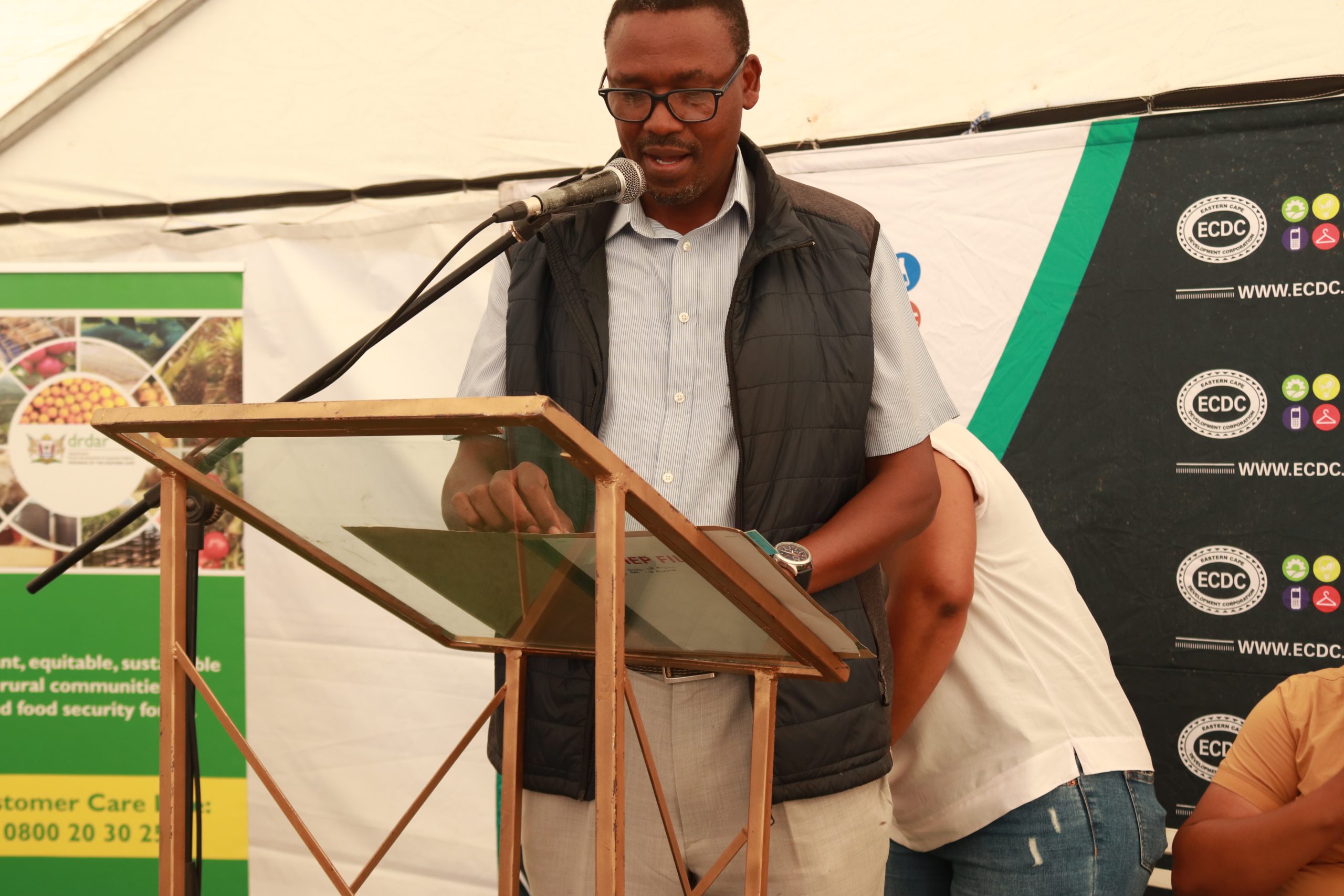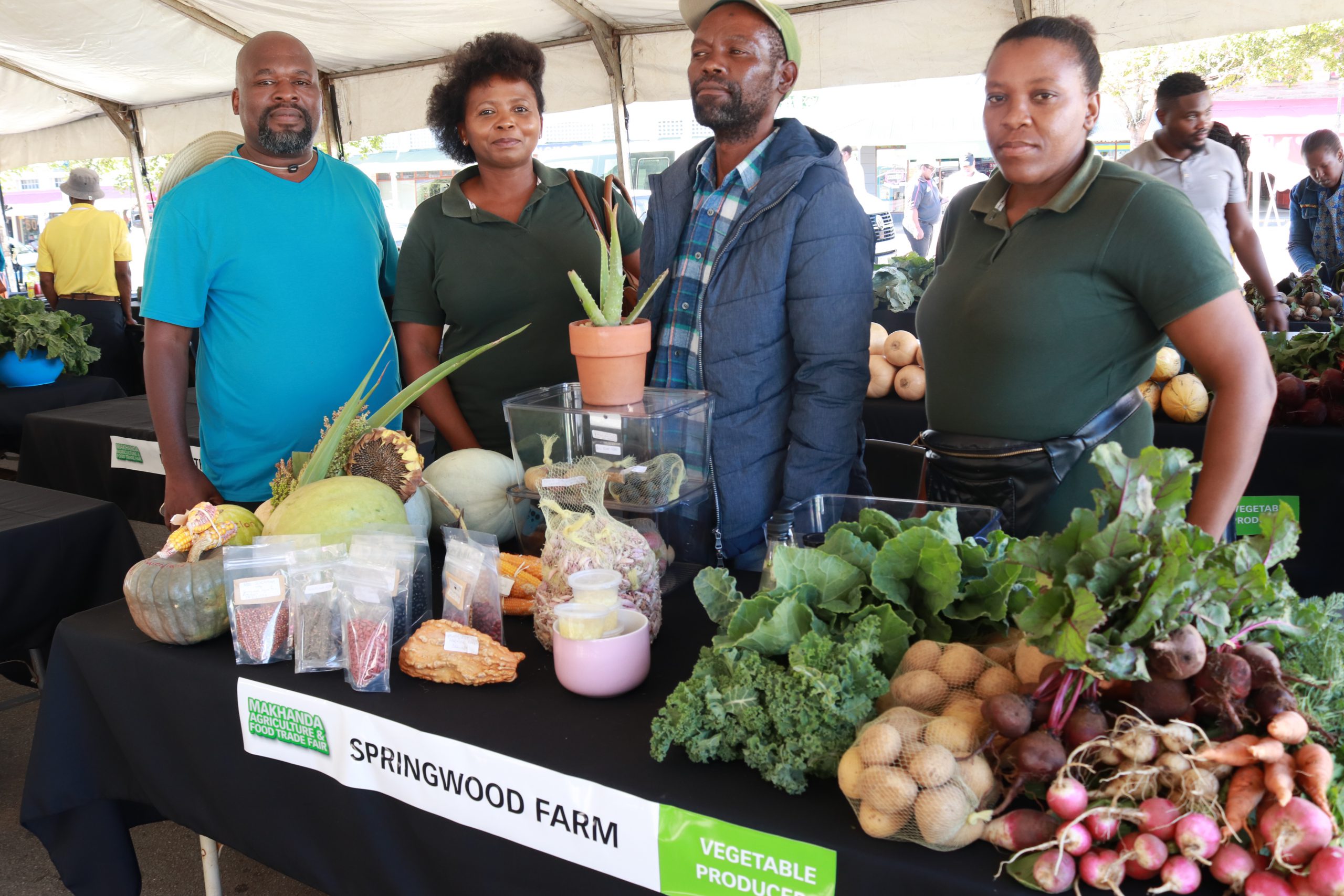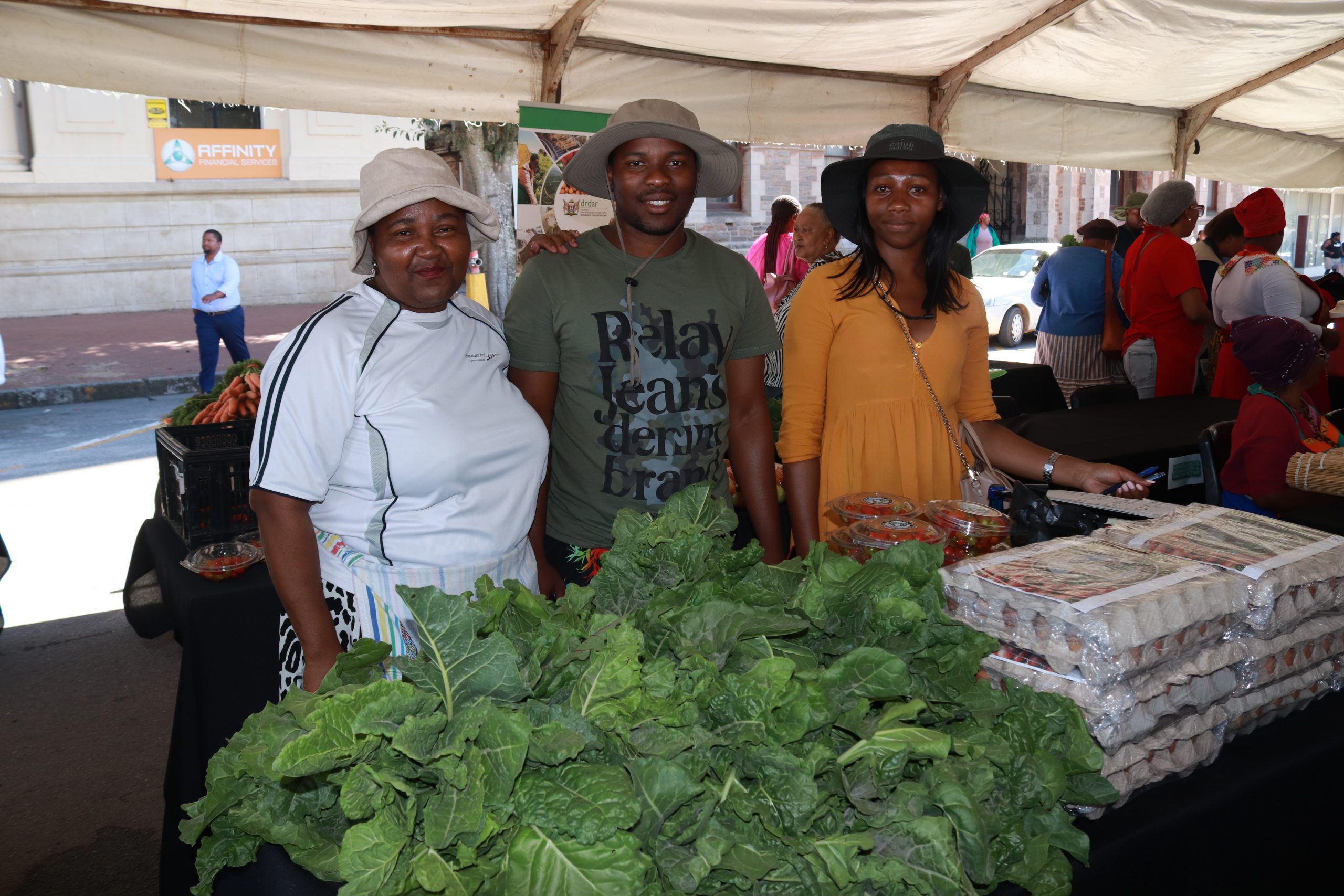By Khanyisa Khenese
The Sarah Baartman District Municipality, together with local municipalities and other sectors, hosted a Makhanda Agriculture and Food Trade Fair on 8 March on Church Square to bring together farmers and food vendors to showcase and sell their farm products and cooked food.
The programme also aimed to strengthen food security and grow a productive economy to eradicate poverty and create employment in Makhanda.
Regional manager of Eastern Cape Development Corporation (ECDC), Vuyokazi Zozi, said the programme is hosted because the municipalities and sectors realise that farmers go beyond what they harvest and yet do not have a market. “The food they produce ends up on the ground, and they end up being defeated,” she said.
Rural Development and Agrarian Reform director Thembani Nyokana emphasised that it is pivotal that farmers produce to make a profit and keep receipts of what they sell to be assisted even when they want to make loans in banks.

“The smallholder farmers must be involved in market-oriented agriculture; they must produce to sell, not to produce and sell.”
He added that if farmers are getting more than they are supposed to get and they can pay workers, electricity and water, then they are farming profitably.
Zozi encouraged and advised farmers to sell quality and standard products and package the food to add value to their products.
Makana council Speaker Mtutuzeli Matyumza said Makhanda is the second biggest area in the Sarah Baartman district to contribute to the gross domestic product. He encouraged farmers to maintain the same contribution to the provincial GDP, create jobs and fight poverty.

“Not all of us are going to work; not all of us are going to be farmers. But importantly, if we talk about poverty, unemployment, and inequality, we all can stand up and respond to the challenge of unemployment and prevent poverty,” Matyumza said.
Entrepreneur and farmer Mohammed Rafiq Moorad described the programme as a “vibrant stimulation for the farming industry”.
He said people have been longing for the Makana Agriculture and Food Trade.
However, he found fault in the farmers’ marketing strategies. “They lack education marketing because there are no telephone numbers, no farm labels, so clients don’t know where to go back; it is a very important exercise that they need revival on,” he said.

A Springwood farmer, Nompumelelo Nyanga, said the farming industry helped her get a job, put food on the table and buy clothes for her kids.
Nyokana told Grocott’s Mail that their plan as the sector of Rural Development and Agrarian Reform is to assist farmers expand their production and provide infrastructure support to allow them to boost their agricultural output.
“We want to give them more support in terms of tractors and implement the irrigation system,” he said.
However, he added that the barrier to the success of their plan is a lack of access to adequate capital, as the government’s budget won’t be able to help farmers. Therefore, they plan to arrange an investor conference to get more private sectors invited and involved in the transformation agenda of the government.
The farmers were urged to register their names and company names as the programme is not the last intervention to assist them.
According to Nyokana, the government has another programme called the aggregate programme, where farmers are encouraged to aggregate to produce and sell their products to the Department of Education, Department of Social Development and Health Department when they are registered.



